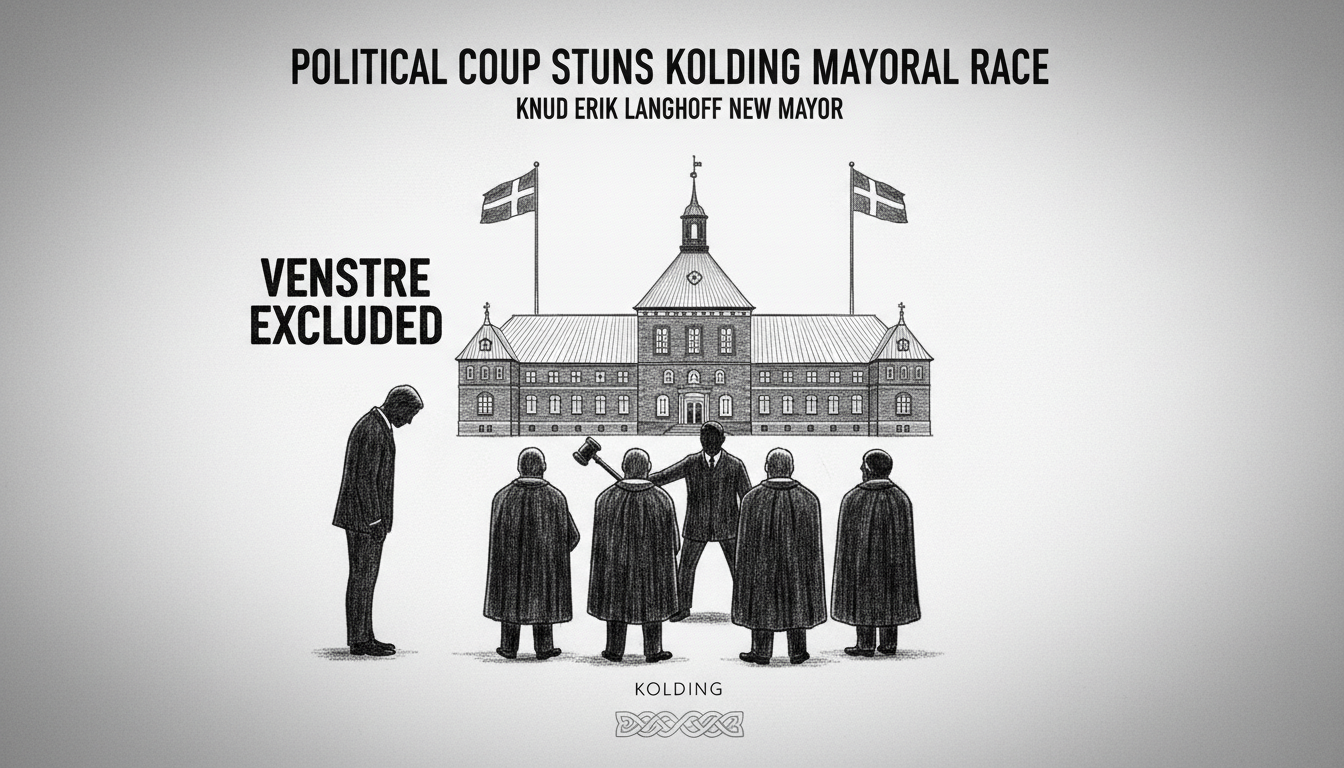The stage was set for a dramatic showdown between two political heavyweights in Denmark's Kolding municipality. Former ministers Eva Kjer Hansen from Venstre and Villy Søvndal from Socialist People's Party were both vying for the mayor's position. But behind the public campaign, a completely different political drama was unfolding that would shock Denmark's political establishment.
Eva Kjer Hansen appeared confident on election night. Her Venstre party had emerged as the largest party in Kolding with nine seats. She repeatedly spoke about uniting the "blue family" of center-right parties to form a majority. Yet something was wrong. Key players were missing from the town hall negotiations.
While journalists waited at the municipal building, representatives from four parties had secretly gathered at a lawyer's office 250 meters away. Socialist People's Party, Social Democrats, Danish Social Liberal Party, and the Conservative People's Party were negotiating a surprise coalition that would exclude Venstre entirely.
The Conservative candidate Knud Erik Langhoff became the unexpected kingmaker. Despite his party winning only modest support, he held the balance of power. The 71-year-old former banker felt no loyalty to Venstre's candidate. He noted that Eva Kjer Hansen had barely established roots in Kolding after moving from Aabenraa.
Political insiders revealed widespread resistance to Eva Kjer Hansen's candidacy across party lines. Many local politicians saw her as an outsider parachuted in from national politics. They questioned her connection to the community and her collaborative style. This created an unusual opportunity for cross-bloc cooperation.
The secret negotiations proceeded smoothly because parties had conducted extensive preliminary discussions before election day. They shared a common goal of preventing Eva Kjer Hansen from becoming mayor. The coalition agreement was finalized on a whiteboard in the lawyer's office while Venstre representatives desperately tried to contact missing negotiators.
When the new coalition finally emerged at the town hall, they announced that Knud Erik Langhoff would become Kolding's first Conservative mayor in 60 years. The four-party coalition controlled exactly 13 of the 25 council seats—the minimum required for a majority.
Eva Kjer Hansen was visibly shaken by the outcome. She expressed disappointment that Conservatives had betrayed what she saw as a natural center-right majority. The result represented a stunning rejection of established political alliances and demonstrated that local concerns sometimes override traditional party loyalties.
This political coup reveals important dynamics in Danish municipal politics. Local candidates with genuine community ties can sometimes defeat nationally known figures. The case also shows how personal chemistry and perceived authenticity matter more than party labels in local government formation. The Kolding scenario has parallels with similar political surprises in other Danish municipalities where local priorities disrupted expected political alignments.
The aftermath saw both high-profile candidates exit local politics relatively quickly. Eva Kjer Hansen left politics entirely the following year after failing to win a parliamentary seat. Villy Søvndal served two and a half years before resigning to run for European Parliament. Their experience serves as a cautionary tale about the challenges national politicians face when entering local politics.
Danish political experts note that the Kolding case illustrates a broader trend of voters rejecting celebrity candidates in favor of authentic local representatives. The successful coalition demonstrated that parties with different national affiliations can cooperate effectively at the municipal level when they share common local priorities and personal rapport.

